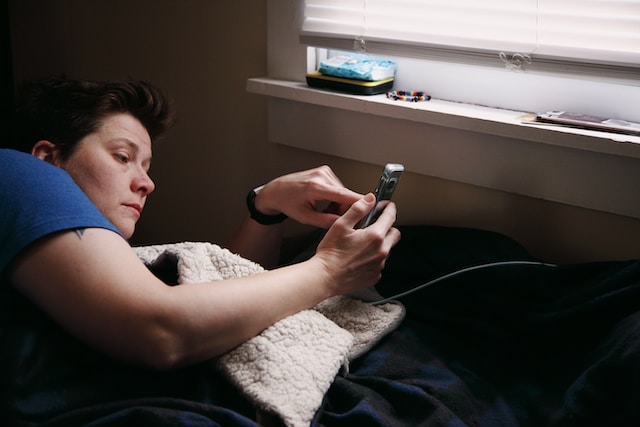As our society shifts, so does sex addiction. Sure, there has always been promiscuity, masturbation, and fetishes. But today, you can indulge in pornography and engage in sexting without leaving your couch. A variety of apps are dedicated solely to “hooking up” with strangers. Then there are behaviors related to artificial intelligence and virtual reality.
Whatever the method, sex addiction springs from a pattern of compulsive, self-sabotaging choices. It impacts the addict and those in their life — and it’s becoming more common by the day. Some 8 percent of American adults struggle with sex addiction, but numbers are very hard to pin down.
Some Symptoms of Sex Addiction
- Sex is an obsession: You allocate an increasing amount of time to fantasizing about and planning your next sexual activity.
- Frequent masturbation: At least once a day — usually more.
- Consuming pornography: This includes porn in all its forms and typically involves masturbation.
- Seeking sex widely: This could mean paying for sex, going to strip clubs, etc.
- Risky behavior: Rampant sexual activity often dovetails with drinking, drugs, and driving while intoxicated. It can also include behaviors with the potential to be dangerous.
- You can’t stop: Even as it threatens your finances, relationships, career, and health, you keep going.
A sex addict may be unable to maintain a healthy relationship or hold down a steady job. Their health suffers from neglecting their basic needs and indulging in unhealthy habits. All of this can breed guilt and shame, which may spiral into mental dysfunction.
What Causes Sex Addiction?
A direct cause is not known, but the following factors are believed to potentially play a role:
- Brain chemistry or altered brain function
- Substance abuse
- Side effects connected to prescription drugs
- Early adverse childhood experiences or “aces“
While more work needs to be done, there are productive steps you can take.
 4 Tips to Overcome a Sex Addiction
4 Tips to Overcome a Sex Addiction
1. Distraction
As with other addictions, it can be very helpful to have healthy replacements to call on when the addictive urge strikes. Choosing something that feels meaningful to you is advisable. Also, exercise is a reliable mainstay. It gets you physically active and sweating while also stimulating the release of positive chemicals like endorphins.
2. Accountability
Recovering from an addiction is not a solo act. Support groups — online and in-person — are a proven choice for providing accountability. Such groups put you in contact with people who understand the struggle. Also, you can gain mightily from being in a position to help others. Through these groups, you can partner with someone who has recovered and can guide you.
3. Monitoring
Get yourself a journal to dedicate to tracking your patterns. You’ll want to monitor triggers and how you respond. It’s an excellent way to gauge progress and this journal will come in handy during your therapy sessions.
4. Spirituality
Whatever you believe, there is power in asking “the universe” to support you. Sex addiction can tear your life down, so this is the ideal time to feel connected to something bigger. If you are someone who adheres to a particular set of beliefs, prayer is essential. Seek out a community to be a part of.
Therapy Is Your Foundation
The above tips will help you take back some of the control you’ve lost to the compulsion. But you’ll need more. Sex addiction works via a powerful cycle of neurological rewards. Leaving it behind requires guidance from a professional who understands. Remember, every addiction serves a function. Addictions and compulsions are very driven by overwhelming fear and buried emotional pain.
Your therapist is the one you can open up to and not fear judgment. Your weekly sessions are a safe space to explore underlying causes while trying out new approaches.
You can recover from sex addiction and I’m here to help you along the way through sex therapy, feel free to reach out.




